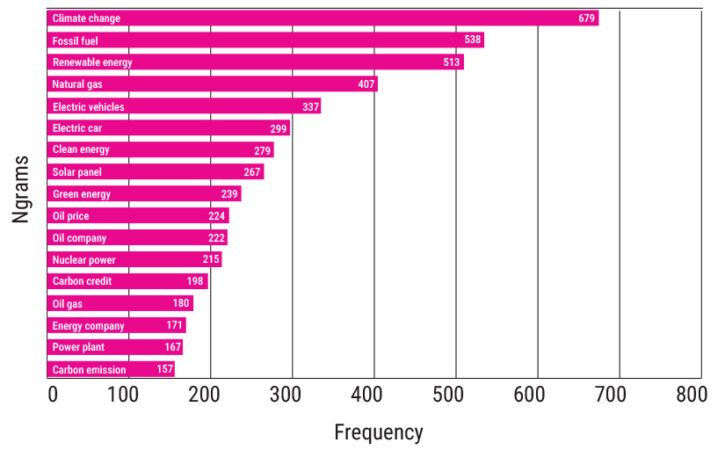Many financial advisers relish the opportunity to talk about ESG with their clients the way a five-year-old relishes the opportunity to eat broccoli.
On the one hand, some clients may be full steam ahead, putting advisers in the tricky position of fulfilling this interest while still getting them to their financial goals. And on the other hand, some clients may respond with great vitriol to the topic, putting the adviser-client relationship in a precarious situation for even broaching the topic.
How is an adviser to navigate this tricky terrain?
To find out, our recent report examines how investors talked about ESG online. Social media serves as a valuable source of knowledge of interest in the topic, for it allows us to examine how people talk about the topic unbound by institutional norms surrounding the topic.
Investors’ ESG conversations are very different than the industry’s
We examined over 26,000 posts and comments related to ESG from finance subreddits (communities organised around specific topics) such as r/UKpersonalfinance and r/investing. Using natural language processing, we extracted common terms and topics as well as the sentiment reflected in posts.
First, ‘ESG’ isn’t really a thing. Overall, investors did not talk about ESG using industry terms. Neither “ESG” nor any of its correlates like “socially responsible investing” came to the surface as common phrases in investor conversations. Instead, investors used more exact terms related to the topic at hand such as “climate change” (see chart). This points to the importance of stepping away from such industry jargon when talking to clients.
Investor use of ‘ESG’ terms

Additionally, ESG wasn’t the sole focus. Common topics in the industry surrounding ESG such as ESG risk or ESG impact did not come up as topics in investors’ conversations. Instead, ESG factors were incorporated into broader conversations related to investing, like considering the viability of an industry given ESG concerns. This again points to a divergence between investors and industry—investors are approaching ESG as part of the puzzle not the whole puzzle itself.
Finally, ESG was not so polarised. Contrary to what one might expect of conversations about ESG (especially on the internet), ESG-related posts and comments were overwhelmingly neutral in sentiment. This neutrality was reflected throughout time; even after the popularity of the topic online exploded in 2020, the conversations largely remained neutral. This again points to the industry conversations differing from investors’ conversations.
Reframing conversations on ESG
These findings present important information about how many clients likely think about ESG that should inform advisers’ future conversations about the topic.
For one, advisers shouldn’t approach clients with ‘ESG’. Our findings show ESG largely remains industry jargon, which can alienate clients. Instead, when the topic comes up, advisers should use language that already carries meaning for clients. One way to do this is to ask clients about causes they care about to establish a common ground for the rest of the conversation.
Second, ESG considerations should also be in service of clients’ goals. Investors generally weren’t solely focused on ESG; instead, ESG considerations were in service of other financial goals. Clients’ goals remain the North Star of financial planning, and values-based investing can be incorporated to serve those goals. By starting with clients’ goals in mind, advisers may find somewhere ESG investing naturally fits for interested clients.
Perhaps most importantly, advisers shouldn’t feel the need to shrink away when ESG arises in conversation. Our findings suggest polarisation around ESG is far more a creation of the industry than actual investors. As such, clients who broach the topic are likely coming from a place of curiosity rather than dogma. Therefore, advisers can view these conversations as an opportunity to engage clients further in the financial planning process—as crafting a financial plan that incorporates values that animate clients can motivate them to stay committed.
Our findings suggest a different approach to conversations about ESG than what has been the norm in the industry. In doing so, it opens doors to have more flexible conversations that bring ESG in (without fear) to work with not only a clients’ values but also their goals.








